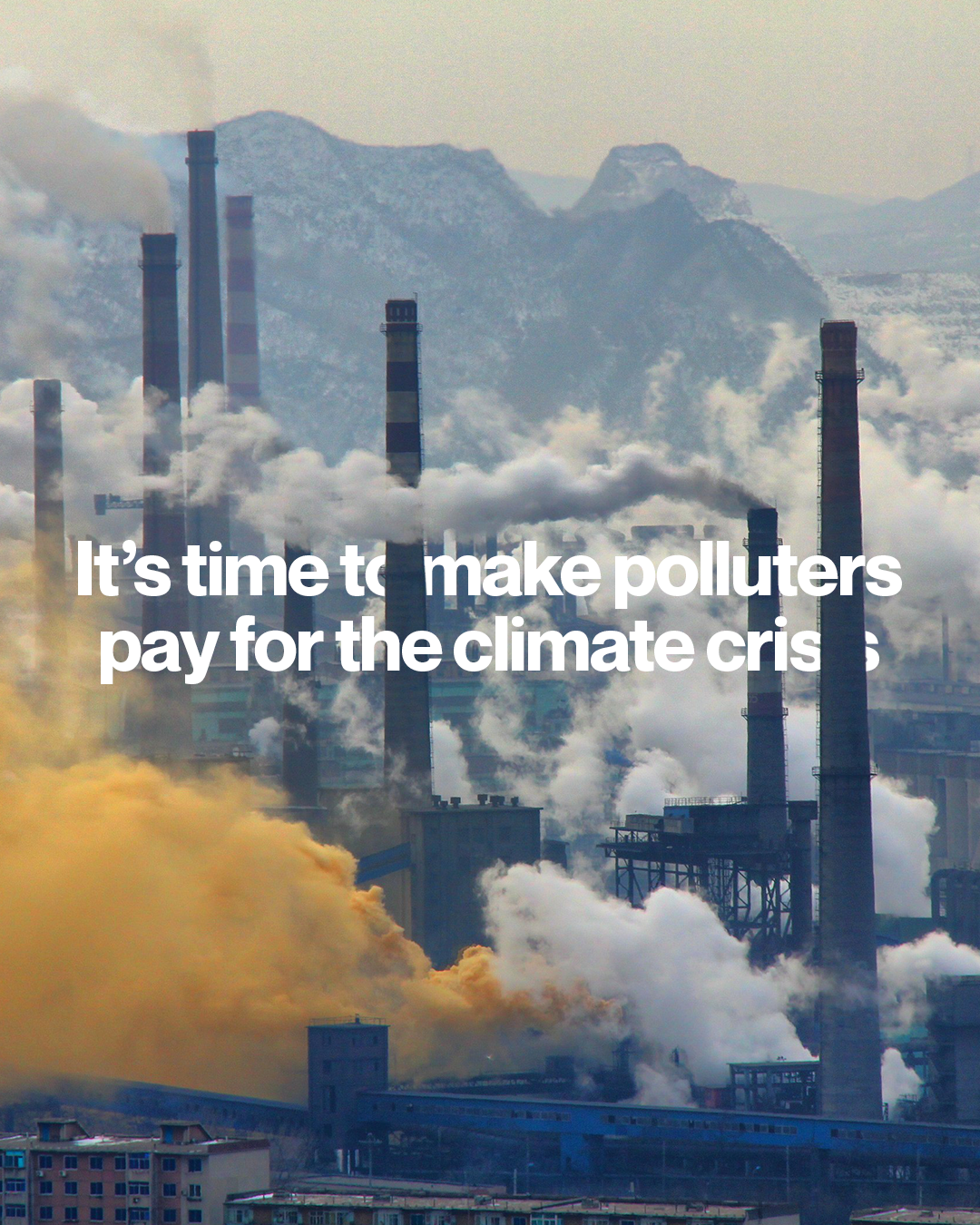By Lewis Ryder-Jones
Imagine you’re walking home when up ahead, you see someone throw a brick through your window before nonchalantly strolling off. Despite several calls to the authorities, and the culprit being clearly identifiable, they are never held to account, and you’re left to pick up the pieces and pay the bill for the damage.
Not fair, right?
Neither is letting the biggest polluters – fossil fuel companies, frequent flyers and the extremely rich who use private jets – get away with climate vandalism while we’re all left to foot the bill.
That’s why today Oxfam is calling for the climate culprits to be compelled to pay up: as we release a new report which shows that new and fairer taxes on the UK’s biggest polluters could have raised up to £23 billion last year had they been implemented.
Our report, Payment Overdue, Fair ways to make polluters across the UK pay for climate justice, shows that by targeting those who are most responsible for emissions, the UK Government can quickly and fairly raise significant funds for climate action while ensuring the burden does not fall disproportionately on ordinary households.
But there’s no sugar coating the fact that the transition to net zero – and associated overhaul of our economy and society – is going to be expensive.
Who foots the bill is a simple matter of fairness.
That’s why Oxfam is recommending that the UK Government enacts a series of common-sense revenue raising measures designed to make polluters pay for their damage, while ensuring the pockets of the poorest households are protected.
Options include a redesigned excess profits tax on fossil fuel companies; redirecting existing fossil fuel subsidies; a frequent flyer levy and new taxes on the use of private jets and superyachts; as well as ringfencing 20 per cent of the proceeds from a system that fairly taxes wealth for climate action.
Illustrative modelling suggests that if the UK Government had spent just over a fifth of the extra revenue raised by the taxes Oxfam proposes on green public transport in England, up to £371.39 million in additional funds would have been available to the Scottish Government via Barnett consequentials.
Where possible, any extra funding flowing to Scotland must, of course, be spent on initiatives that help the Scottish Government simultaneously reduce poverty and emissions.
For example, putting the cash into making bus travel free for more people – starting with people on low incomes who disproportionately rely on buses.
But there’s no use in spending imaginary money. Humza Yousaf must help secure it: pressing the Prime Minister to implement the sorts of fair taxes Oxfam has recommended.
In the meantime, the First Minister mustn’t sit on his hands. Instead, he must explore using devolved tax levers to fairly fund climate action and to help change the behaviours of the highest emitters.
With global temperatures soaring, never has there been a more important time for our leaders at Westminster and Holyrood to turn up the heat on fossil fuel companies and the high-emitting behaviours of the wealthiest people.
The climate bill is large and growing, and a fair transition should be rooted in making those most responsible for climate vandalism pay up: their payment is already well overdue.
